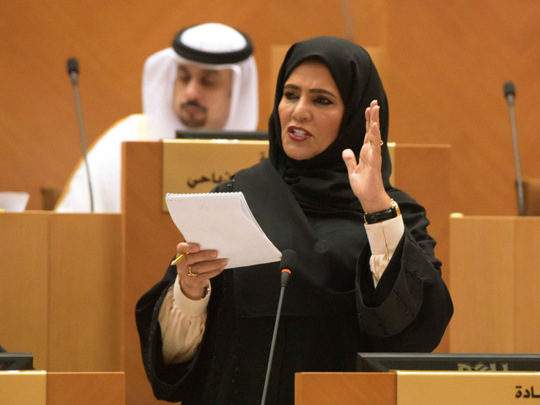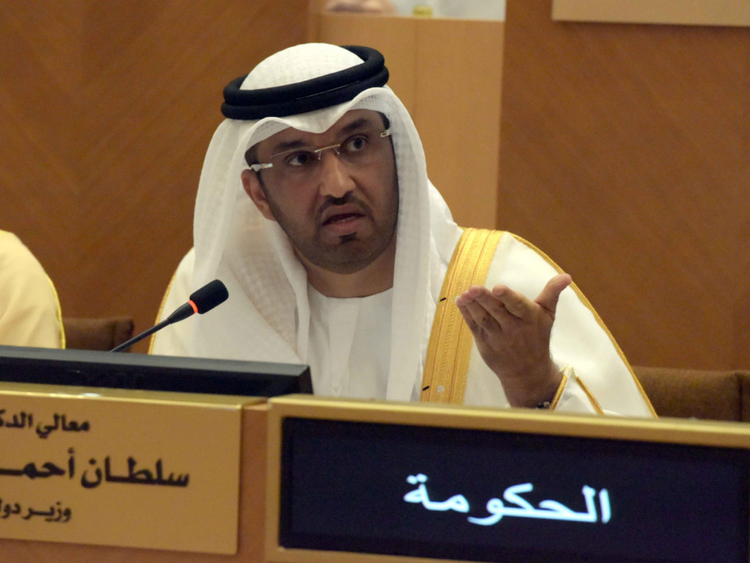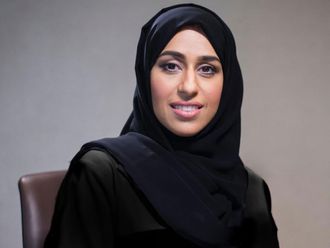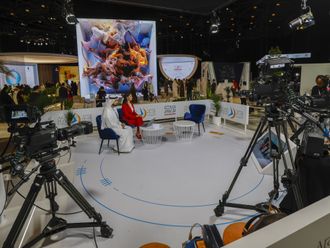
Abu Dhabi: Members of the Federal National Council on Tuesday called for stricter regulations of social media platforms to combat online misinformation, fake news and hate speech.
They argued that the social media outlets — a highly unregulated industry that invites millions of users everyday to its various platforms — must be regulated and they must take responsibility for their content.
The members were debating the policy of the National Media Council, the UAE’s media regulator.
Hamad Al Rahoumi, a member from Dubai and rapporteur of the House’s committee on education, culture and media, said the FNC supports freedom of the media but the social media content which might tarnish the image of the UAE must be stopped.
“It is in the interest of the country to protect the integrity of the social media so that it is a tool for development, not a tool for destruction. Social media has reached a point where there is a need to set standards suitable for public interest,” Al Rahoumi said.
Naama Al Sharhan, a member of the House from Ras Al Khaimah and chairperson of the committee, agreed the content of social media networks must be regulated to have quality content that upholds values and standards of the UAE’s culture.
Al Sharhan warned against the damaging influence of social media influencers or fashionistas. “Concerns are increasingly voiced across the country over the damaging impact of these new social media players on the minds of the people and especially the younger generation and their values and traditions. In their role as influencers and marketers, fashionistas’ social media accounts are often launch pads or promotion platforms for goods and services.”
Saeed Al Rumaithi, a member from Abu Dhabi, said a greater control of the social media content is needed, especially advertisement on Facebook, Twitter and Snapchat.
“Some social media platforms are not licensed in the country, but they still operate. Many other countries exercised their sovereign right and made it mandatory for these networks to obtain a licence before they operate there,” Al Rumaithi said.
Marwan Bin Galita, First Deputy Speaker of the House who chaired the session, said technology has good things and bad things so the social media platforms must only be utilised to achieve the UAE’s development goals.
Members of the House also pressed for more efforts to boost the presence of Emiratis in the media to foster national identity.
Sultan Al Jaber, Minister of State and chairman of the National Media Council, said regulations have been issued for electronic media.
The rules unveiled last month govern all online activities including e-commerce, publishing and selling of print, video and audio material as well as advertising.
The new guidelines apply to news websites, electronic publishing outlets, and on-demand printing, including commercial activities conducted through social media within the UAE.
Al Jaber said the regulations seek to help the UAE media sector remain on top of the rapid developments in electronic media, in addition to enriching and organising digital content, and ensuring that media material respects the religious, cultural and social values of the UAE, all the while promoting freedom of expression and constructive dialogue.
Websites of licensed traditional media such as television, radio, newspapers and magazines are exempt. Also exempt are websites of schools, colleges and universities as well as government entities.
Companies registered in free zones are subject to the regulation.
Al Jaber said Emiratisation is a responsibility and a goal that must be achieved. “The Emirati workforce in the Media Council has increased from 63 per cent last year to 67 per cent this year — one of the highest Emirati workforce rate in federal authorities,” he said.
Free zones
Al Jaber said the UAE is a regional hub for many of the social media platforms. This is an achievement — attracting this media potential and to be based in the region.
“Any social media platform that operates within the country and has a physical presence must be licensed according to the new system. The council’s legislation allows for the prohibition of any unlicensed sites and we are working in coordination with the authorities concerned,” the minister said, praising the role of the Telecommunications Regulatory Authority.
Al Jaber said that the licensed media outlets in free zones are: 38 radio stations, 180 television stations, 54 newspapers and 975 magazines. “This demonstrates the size of the work and also the council’s relationship with the media in free zones governed by the law.”












